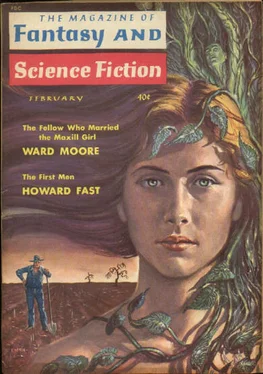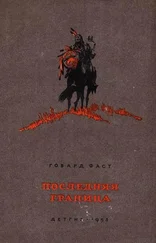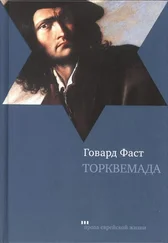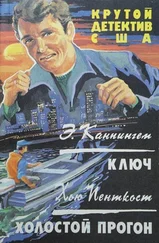Говард Фаст - The first men
Здесь есть возможность читать онлайн «Говард Фаст - The first men» весь текст электронной книги совершенно бесплатно (целиком полную версию без сокращений). В некоторых случаях можно слушать аудио, скачать через торрент в формате fb2 и присутствует краткое содержание. Год выпуска: 1960, Издательство: Fantasy House, Жанр: Социально-психологическая фантастика, на английском языке. Описание произведения, (предисловие) а так же отзывы посетителей доступны на портале библиотеки ЛибКат.
- Название:The first men
- Автор:
- Издательство:Fantasy House
- Жанр:
- Год:1960
- ISBN:нет данных
- Рейтинг книги:4 / 5. Голосов: 1
-
Избранное:Добавить в избранное
- Отзывы:
-
Ваша оценка:
- 80
- 1
- 2
- 3
- 4
- 5
The first men: краткое содержание, описание и аннотация
Предлагаем к чтению аннотацию, описание, краткое содержание или предисловие (зависит от того, что написал сам автор книги «The first men»). Если вы не нашли необходимую информацию о книге — напишите в комментариях, мы постараемся отыскать её.
The first men — читать онлайн бесплатно полную книгу (весь текст) целиком
Ниже представлен текст книги, разбитый по страницам. Система сохранения места последней прочитанной страницы, позволяет с удобством читать онлайн бесплатно книгу «The first men», без необходимости каждый раз заново искать на чём Вы остановились. Поставьте закладку, и сможете в любой момент перейти на страницу, на которой закончили чтение.
Интервал:
Закладка:
Of course you will take the job. We love you and we need your help.
Jean
___________________________________________
By Airmail
Cape Town, South Africa
December 20, 1945
Mrs. Jean Arbalaid
Washington, D. C. My dear sister:
Of all the hairbrained ideas! If this is our secret weapon, I am prepared to throw in the sponge right now. But a job is a job. It took me a week to follow the Professor's meandering through Cape Town — only to find out that he took off for London in 1944. Evidently, they needed him there. I am off to London.
Love, Harry
___________________________________________
By diplomatic pouch
Washington, D. C.
December 26, 1945
Mr. Harry Felton
London, England
Dear Harry:
This is dead serious. By now, you must have found the professor. We believe that despite protestations of your own idiocy, you have enough sense to gauge his method. Sell him this venture. Sell him! We will give him whatever he asks — and we want him to work with us as long as he will.
Briefly, here is what we are up to. We have been allocated a tract of eight thousand acres in Northern California. We intend to establish an environment there — under military guard and security. In the beginning, the outside world will be entirely excluded. The environment will be controlled and exclusive.
Within this environment, we intend to bring forty children to maturity — to a maturity that will result in man-plus.
As to the details of this environment — well that can wait. The immediate problem is the children. Out of forty, ten will be found in the United States; the other thirty will be found by the professor and yourself — outside of the United States.
Half are to be boys; we want an even boy-girl balance. They are to be between the ages of six months and nine months, and all are to show indications of an exceedingly high IQ — that is, if the professor's method is any good at all.
We want five racial groupings: Caucasian, Indian, Chinese, Malayan and Bantu. Of course, we are sensible of the vagueness of these groupings, and you have some latitude within them. The six so-called Caucasian infants are to be found in Europe. We might suggest two northern types, two Central European types, and two Mediterranean types. A similar breakdown might be followed in other areas.
Now understand this — no cops and robbers stuff, no OSS, no kidnapping. Unfortunately, the world abounds in war orphans — and in parents poor and desperate enough to sell their children. When you want a child and such a situation arises, buy! Price is no object. I will have no maudlin sentimentality or scruples. These children will be loved and cherished — and if you should acquire any by purchase, you will be giving a child life and hope.
When you find a child, inform us immediately. Air transport will be at your disposal — and we are making all arrangements for wet nurses and other details of child care. We shall also have medical aid at your immediate disposal. On the other hand, we want healthy children — within the general conditions of health within any given area.
Now good luck to you. We are depending on you and we love you. And a merry Christmas.
Jean
___________________________________________
By diplomatic pouch
Copenhagen, Denmark
February 4, 1946
Mrs. Jean Arbalaid
Washington, D. C
Dear Jean:
I seem to have caught your silly top-secret and classified disease, and I have been waiting for a free day and a diplomatic pouch to sum up my various adventures. From my "guarded" cables, you know that the professor and I have been doing a Cook's Tour of the baby market. My dear sister, this kind of shopping spree does not sit at all well with me. However, I gave my word, and there you are. I will complete and deliver.
By the way, I suppose I continue to send these along to Washington, even though your "environment," as you call it, has been established. I'll do so until otherwise instructed.
There was no great difficulty in finding the professor. Being in uniform — I have since acquired an excellent British wardrobe — and having all the fancy credentials you were kind enough to supply, I went to the War Office. As they say, every courtesy was shown to Major Harry Felton, but I feel better in civilian clothes. Anyway, the professor had been working with a child reclamation project, living among the ruins of the East End, which is pretty badly shattered. He is an astonishing little man, and I have become quite fond of him. On his part, he is learning to tolerate me.
I took him to dinner — you were the lever that moved him, my dear sister. I had no idea how famous you are in certain circles. He looked at me in awe, simply because we share a mother and father.
Then I said my piece, all of it, no holds barred. I had expected your reputation to crumble into dust there on the spot, but no such thing. Goldbaum listened with his mouth and his ears and every fibre of his being. The only time he interrupted me was to question me on the Assamese girl and the Bantu boy; and very pointed and meticulous questions they were. When I had finished, he simply shook his head — not in disagreement but with sheer excitement and delight. I then asked him what his reaction to all this was.
"I need time," he said. "This is something to digest. But the concept is wonderful — daring and wonderful. Not that the reasoning behind it is so novel. I have thought of this — so many anthropologists have. But to put it into practice, young man — ah, your sister is a wonderful and remarkable woman!"
There you are, my sister. I struck while the iron was hot, and told him then and there that you wanted and needed his help, first to find the children and then to work in the environment.
"The environment," he said; "you understand that is everything, everything. But how can she change the environment? The environment is total, the whole fabric of human society, self-deluded and superstitious and sick and irrational and clinging to legends and phantasies and ghosts. Who can change that?"
So it went. My anthropology is passable at best, but I have read all your books. If my answers were weak in that department, he did manage to draw out of me a more or less complete picture of Mark and yourself. He then said he would think about the whole matter. We made an appointment for the following day, when he would explain his method of intelligence determination in infants.
We met the next day, and he explained his methods. He made a great point of the fact that he did not test but rather determined, within a wide margin for error. Years before, in Germany, he had worked out a list of fifty characteristics which he noted in infants. As these infants matured, they were tested regularly by normal methods — and the results were checked against his original observations. Thereby, he began to draw certain conclusions, which he tested again and again over the next fifteen years. I am enclosing an unpublished article of his which goes into greater detail. Sufficient to say that he convinced me of the validity of his methods. Subsequently, I watched him examine a hundred and four British infants — to come up with our first choice. Jean, this is a remarkable and brilliant man.
On the third day after I had met him, he agreed to join the project. But he said this to me, very gravely, and afterwards I put it down exactly as he said it:
"You must tell your sister that I have not come to this decision lightly. We are tampering with human souls — and perhaps even with human destiny. This experiment may fail, but if it succeeds it can be the most important event of our time — even more important and consequential than this war we have just fought. And you must tell her something else. I had a wife and three children, and they were put to death because a nation of men turned into beasts. I watched that, and I could not have lived through it unless I believed, always, that what can turn into a beast can also turn into a man. We are neither. But if we go to create man, we must be humble. We are the tool, not the craftsman, and if we succeed, we will be less than the result of our work."
Читать дальшеИнтервал:
Закладка:
Похожие книги на «The first men»
Представляем Вашему вниманию похожие книги на «The first men» списком для выбора. Мы отобрали схожую по названию и смыслу литературу в надежде предоставить читателям больше вариантов отыскать новые, интересные, ещё непрочитанные произведения.
Обсуждение, отзывы о книге «The first men» и просто собственные мнения читателей. Оставьте ваши комментарии, напишите, что Вы думаете о произведении, его смысле или главных героях. Укажите что конкретно понравилось, а что нет, и почему Вы так считаете.


![Говард Фаст - Муравейник Хеллстрома.[Херберт Ф. Муравейник Хеллстрома. Фаст Г. Рассказы]](/books/84780/govard-fast-muravejnik-hellstroma-herbert-f-mura-thumb.webp)






